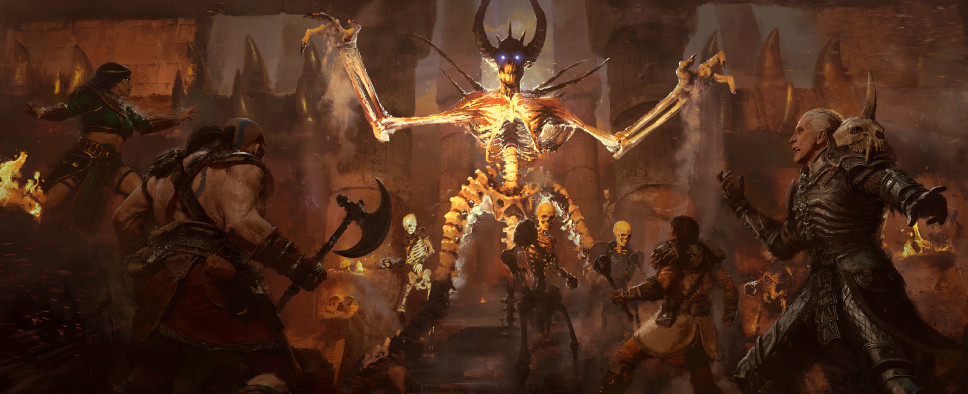Diablo II: Resurrected Console Features Overview
-
Category: News ArchiveHits: 1937

When Diablo II: Resurrected launches on September 23, 2021, you'll be able to play Blizzard Entertainment's remaster not only on PC, but also on your Xbox, PlayStation, and Nintendo Switch consoles. And with that in mind, we get this here developer blog that highlights the game's console features, as well as some of the challenges of making it work on a controller.
Here's an excerpt to get you started:
Movement on Controller
When playing on a controller, movement is bound to the thumb-stick. So, the player, rather than the game, will direct where the character moves. For this to work, we turned off the game’s pathfinding on console and as a result, players can now travel the places the game would have never guided you before. An example of this is a player now being able to run their character into a wall or move against collision objects. With this freedom of movement, it’s easier to avoid attacks from enemies. Beyond determining where to go, you also need to determine how fast you go. Diablo II has a stamina framework. This implies that there are two methods of movement, walking and running. At the point when your stamina drains, you can no longer run. We wanted to have this framework work in parallel with players’ assumptions that when you push the thumb stick a bit, you move a modest amount, and when you push it as far as possible, you move at maximum speed. Walking gives your character better stats in the game, so it was critical we made it simple for players to control this. We went with a toggle as it preserved the conscious decision of opting to walk rather than run. This was imperative for looting, however more on that later.
Targeting on Controller
The next substantial contrast when not having a mouse is not having cursor. This means you don’t have a way to direct the game on what to target and attack. To address this, with a thumb stick on the controller, we are continually examining the playfield with an enormous cone, and prioritizing targets at many levels, including monsters, items, objects you can interact with, different players, your corpse, and more. Additionally, the priorities are tweaked by class. An example of this is the Necromancer. The Necromancer prioritizes corpses more than other classes do. At one point we tried showing a player all the different targeting options, but it was incredibly overwhelming on the HUD. So, we made the decision to just show the player their classes’ primary target. Ultimately, even though we don’t show a corpse being highlighted, the nearest one is selected (because it’s closest) should the player trigger an ability that requires a corpse.
Looting on Controller
Plundering the foes you’ve killed is just as important as killing them. Players normally loot with keyboard and mouse by holding a key to see the item’s label, and afterwards, they would click on the name. For some, holding a button on controller can be uncomfortable, so we eliminated the need to hold down the item label button (although it’s still present). When utilizing a controller, item names are revealed by two factors: time and distance. So, if an item is close to a player, it will always be visible. What’s more, when an item drops, the name of the item will display on the screen for a brief amount of time. Our next challenge was to decide how a player picks the item up. Using a controller, it just seemed well and good to have the player stroll over the item. However, this proved to be quite difficult when a monster would detonate into a trove of loot, yet the player just needed that one specific item. Eventually, we added the ability for players to pace themselves slowly over loot and stop in the middle of various items on the ground so they could loot the item of their choice, making the looting experience undeniably more open and less hindered.

